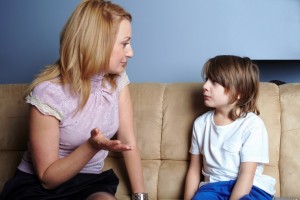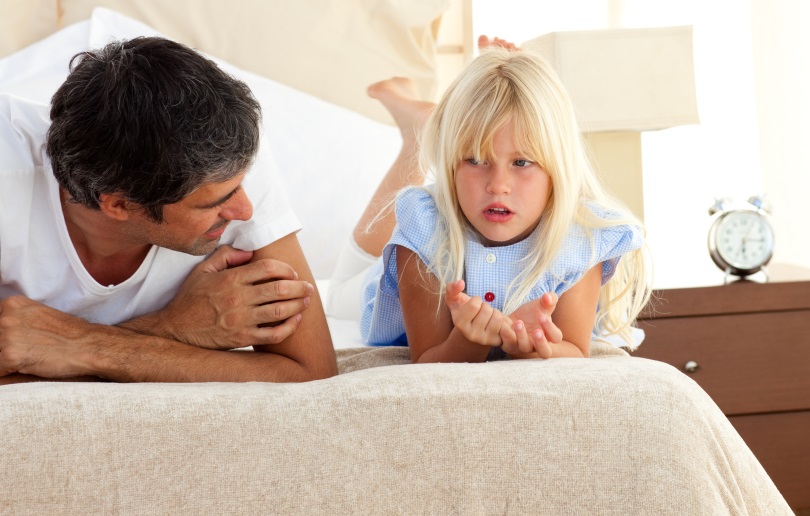Telling Your Child You Have Cancer
Ways to Tell Your Children You Have Cancer
 A cancer diagnosis can feel overwhelming. Not only do you need to learn more about your disease and research cancer treatment options, but you must let your friends and family know about your disease so they can provide the support and assistance that you’ll undoubtedly need as you undergo treatment.
A cancer diagnosis can feel overwhelming. Not only do you need to learn more about your disease and research cancer treatment options, but you must let your friends and family know about your disease so they can provide the support and assistance that you’ll undoubtedly need as you undergo treatment.
Making the announcement to your adult family and friends is challenging enough, but telling your children that you have cancer is often even harder. Young children aren’t equipped to understand the seriousness of your illness, or they may automatically assume the worst. It’s still important to let them know what’s happening. How you approach breaking the news can actually help your entire family beat cancer together.
Get Professional Help
Most experts recommend waiting to tell young children about your diagnosis until you know your prognosis. Children are better able to understand concepts when they can see the entire picture, so while you can never guarantee a particular outcome, it’s far better to be able to say, “Mommy is very sick. She has a disease in her lungs, but the doctors are very confident that they can fix it,” than to say “Mommy is very sick and we don’t know what is going to happen.” Older children and teens may be better equipped to handle uncertainty, and may wish to help you research treatment options, but you will know best what they can handle.
Before talking with your kids, talk with your treatment team about their recommendations. They can provide resources, and many doctors will meet with the entire family to discuss your illness, treatment and prognosis. It may be helpful to have counselors and support groups in place for your kids to turn to if necessary.
Be Positive and Honest
Again, you cannot always guarantee a specific outcome, but it’s best to be as positive as possible when discussing your diagnosis. Young children are generally most concerned with how the announcement is going to affect them, so focus on reassuring them that you will be doing everything you can to ensure that their lives stay as normal as possible. Let them know that others, like grandparents or family friends, will be helping out, but that you will try to maintain as much of your family’s normal routine as possible.
At the same time, your children must understand that there will be some changes to your lifestyle, at least in the short term. Explain that you may need to spend some time in the hospital and you may be ill or uncomfortable at times. It’s very likely that your child will ask whether you will die. Again, it’s important to stay as positive as possible, but be honest. While it may be difficult, in the end being dishonest will only cause more harm.
Maintain Normalcy
Once you’ve made the announcement and given your family time to process the news, try to maintain as much normalcy as possible. Expect that your children will have emotional outbursts or be “clingier” than usual. Try to give them as much attention as possible while still maintaining the same rules and boundaries as before your diagnosis. Ask them questions about their feelings and fears, and keep them as involved as is appropriate. Spend time together as a family without focusing on your illness.
A diagnosis of cancer is difficult to understand at any age, but it’s especially challenging for a child. If you have recently received a diagnosis, schedule a consultation with the compassionate and understanding specialists at Pasadena CyberKnife Los Angeles Cancer Treatment Center to discuss your treatment options. Together, you can develop a course of treatment that meets everyone’s needs.
